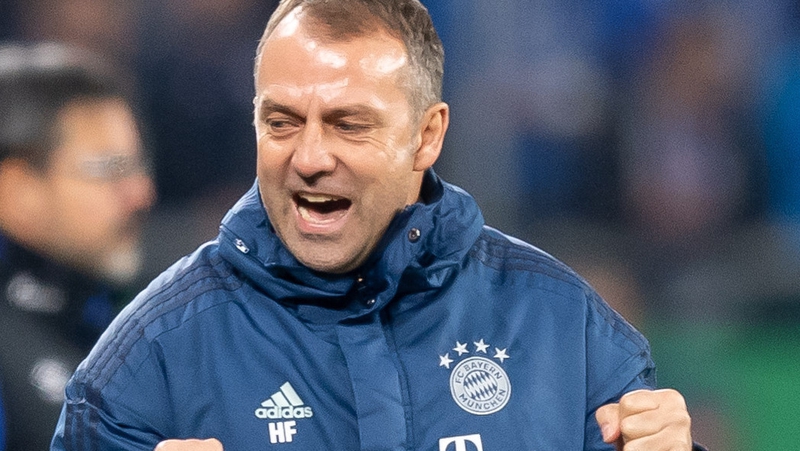

Of course, Gotze is far more than a water-carrier - as shown through his World Cup winning goal in 2014 and his form for Frankfurt this season - but the expectation now placed on the 30-year-old talent to be a spark of inspiration in midfield and once again lead his nation to glory is the kind of long shot that we haven’t seen from Germany since Lothar Matthäus’ surprise call up to the 1998 World Cup. Such has been the extent of Flick’s lack of options that he took the nation by surprise last week by calling up Mario Gotze, whose five-year hiatus from the national team was brought to an abrupt end with the manager stating that he had opted for the Eintracht Frankfurt playmaker seemingly because he’s fit and can readily play three games a week if called upon. It went without saying for most Germany fans. “But of course we expect more from him overall,” noted the Germany manager. When asked why the latter was included in his squad, Flick had to go back to a single game in early October when the new Dortmund signing was particularly industrious against Bayern Munich, before admitting that Adeyemi would need to improve considerably in Qatar. But the squad's lack of depth can be all too easily illustrated through a call up for Dortmund pair Julian Brandt and Karim Adeyemi, who have managed just seven goals and three goals in a combined 39 appearances between them this season.

The nation can lay claim to a remarkable break-through talent in Jamal Musiala and in Joshua Kimmich, Leon Goretzka and Ilkay Gundogan, Flick has as good a midfield trio as any nation at the tournament. Germany’s issues are also all too apparent in midfield.

While the elder statement of this make-shift defence, Antonio Rudiger, hasn’t played for club or country since late October due to a hip injury and it remains to be seen whether he’ll be fit in time for the tournament. Both of which have struggled under tactical novice Edin Terzic at the Westfalenstadion this season, to the tune of 21 conceded goals in 15 league games. Worriningly for Flick and Germany, this team’s defensive stability will likely rely on Dortmund pair Nico Schlotterbeck and Niklas Sule. Now, in 2022, the question is pertinent, particularly around the defence: Where are the Germans?įlick was probably right to leave Borussia Dortmund’s ageing star Mats Hummels at home but his claim that he has one “eye on the future” falls short when we consider that only two of his nine defenders are under the age of 22 and in Matthias Ginter, Lukas Klostermann and Christian Gunter, the Germany head coach has tied his hopes to players that have long since proved to be little more than decent Bundesliga defenders at best. It was in the Seoul Olympics of 1988 where the great Barry Davies, commentating on a hockey match, saw Britain score and exclaimed: “Where were the Germans? And frankly who cares?” Whether it be poorly executed press conferences, an underwhelming 1-0 win over Oman on Wednesday night that could have easily gone the other way, or a squad that looks like a mishmash of unproven or underperforming stars, brought together on the simple notion that there was no one else to choose from, Germany simply aren’t quite the force they once were. Indeed, there’s very little to suggest that Flick and his squad are in fact ready for this World Cup. The sight of the 57-year-old carefully coordinating the huge cardboard display over the microphones and cameras with a handful of helpers in high-visibility jackets and bewildered media staff would have undoubtedly been seen as a charming moment, had it not acutely chimed with the wider issues that are facing the German national team at the moment. International managers are required to have a broad set of skills but even someone as experienced as Hansi Flick may have raised an eyebrow when he was required to set up the advertising board for his own press conference on Wednesday.


 0 kommentar(er)
0 kommentar(er)
